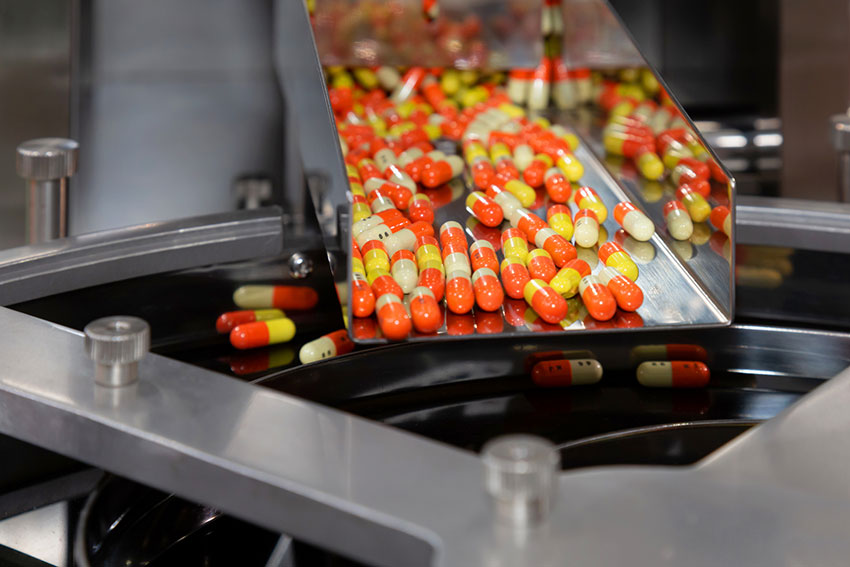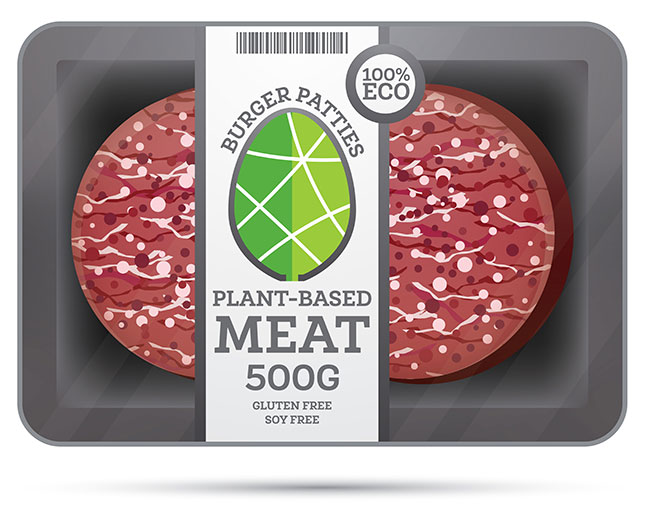ACE METAL CRAFTS COMPANY Celebrates Our 60th Anniversar
January 22, 2020
U.S. Manufacturing Adapts to Combat Medical Supplies Shortage
April 13, 2020
The Wild Growth of Plant-Based Meat Substitutes
No longer can plant-based meat substitutes be considered a “fad”. Investors are projected to pour $85 billion into plant-based substitutes by 2030.1 The largest companies, like Beyond Meat and Impossible Foods, have grown to the point of partnering with major food chains around the United States. Burger King, White Castle, Carl’s Jr./Hardee’s, Dunkin’, Del Taco, and Qdoba are just a few of the chains now offering Impossible Foods or Beyond Meat branded protein at their stores. By the time you are reading this, you might even find it in the frozen dinner section with Stouffers Meatless Lasagna and DiGiorno Meatless Supreme Pizza scheduled for a release sometime this spring.2
These meat substitutes are no longer just for the vegan or vegetarian. Swapping out beef or chicken for a meatless protein is nothing new. Black-bean or veggie burgers have long been staples of diners and pubs and tofu has been around for thousands of years. However, these plant-based meat alternatives differ from vegetarian options in the past, as they are attempting to recreate the taste and feel of meat. Advertisements boast of blind taste-testers being tricked into thinking it’s the real deal. And plant-based substitutes are no longer just mimicking beef. Vegan and vegetarian friendly chicken and pork substitutes are readily available at many local grocery stores.
Meat substitutes have moved to specifically marketing to meat-eaters. A study from Dupont3 Nutrition and Health noted 52% of the U.S. and 65% of the World were eating more plant-based proteins. Part of the increased presence of meatless substitutes appears to be due to consumers' concerns over health, but a significant portion can be attributed to sustainability and environmental concerns as well.
ACE METAL CRAFTS COMPANY has been closely in tune with the changes occurring in the food industry as they relate to plant-based proteins. Back in November of 2017, we highlighted lab grown meat, and company Memphis Meats as a potential threat to agri-business. Lab grown or cultured meat differs from plant-based meat substitutes in that it is still meat, but grown separately from an animal in the lab. While still a ways off from the market due to high development costs, Memphis Meats is closer than ever,4 with some analysts projecting cultured meat to become a major market player in the next five years.5
Whether from a cow, a plant, or a petri dish, these types of food still require adherence to strict safety guidelines to protect consumers from food-borne illness. Raw agricultural products still carry a bacterial risk and human handling can affect food safety. This means that plant-based protein and cultured meat are still subject to regulation by the FDA and USDA.6 Plant-based protein requires the same level of sanitary process machinery to produce and package as traditional meat. ACE provides many of the high quality stainless steel fabrications and machined components to OEMs in the food processing and packaging, helping them adhere to food safety guidelines regardless of if the food is coming from a chicken or from a soybean.

[1] Lillianna Byington Tracking the plant-based protein movement
[2] Kat Thompson Plant-Based Meat Has Officially Infiltrated Digiorno Pizza and Stouffer's Lasagna
[3] DuPont
[4] Katherine Martinko Lab-grown meat is coming to your plate
[5] Rhian Hunt Will Beyond Meat and Impossible Foods Survive Lab Meat’s Challenge?
[6] North American Mean Institute Plant Based and Cultured Alternative Protein Products
Stock images © Getty Images




